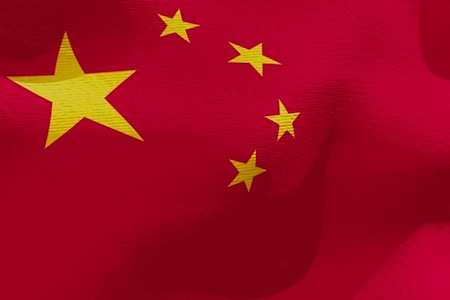Ordering Off the Menu in China Debates

Image via Shutterstock.

Originally posted on OUPblog.
 Growing up with no special interest in China, one of the few things I associated with the country was mix and match meal creation. On airplanes and school cafeterias, you just have “chicken or beef” choices, but Chinese restaurants were “1 from Column A, 1 from Column B” domains. If only in recent China debates, a similar readiness to think beyond either/or options prevailed!
Growing up with no special interest in China, one of the few things I associated with the country was mix and match meal creation. On airplanes and school cafeterias, you just have “chicken or beef” choices, but Chinese restaurants were “1 from Column A, 1 from Column B” domains. If only in recent China debates, a similar readiness to think beyond either/or options prevailed!
I thought of this when Reuters ran an assessment of Xi Jinping’s first weeks in power last months that in some venues carried this “chicken or beef” sort of headline: “China’s New Leader: Reformist or Conservative?” Previous Chinese leaders have often turned out to have both reformist and conservative sides. Even Deng Xiaoping, considered the quintessential reformer due to his economic policies, held the line on political liberalization and backed the brutal 1989 crackdown. Mightn’t Xi, too, end up ordering from the reformist and conservative sides of the menu?
Mo Yan’s Nobel Prize win last fall, which continues to generate controversy, led some foreign commentators into a similar “chicken or beef” trap -- or, rather, an “Ai Weiwei or Zhang Yimou” one. The former is an artist locked into an antagonistic relationship with the government, the latter a filmmaker who has been choreographing spectacles celebrating Communist Party rule, including both the Opening Ceremonies of the Beijing Games and a 2009 gala staged to commemorate the sixtieth anniversary of the founding of the People’s Republic. Since they are two of the only internationally prominent Chinese creative figures, some Westerners assumed Mo must be like one or the other.
In fact, the novelist shares traits with each but isn’t all that similar to either. Like China’s best-known artist, Mo has a penchant for mocking the powerful. And like the renowned filmmaker turned state choreographer, Mo works within the system, serving as a Vice-Chairman of the official writer’s association and recently agreeing to be a delegate to the Chinese People’s Consultative Political Conference. Unlike Ai Weiwei, though, Mo skewers only relatively safe targets, like the kinds of corrupt local officials that the central authorities don’t mind seeing satirized, and instead of railing against censorship, he has likened it to an inconvenience akin to airport security protocols. And unlike Zhang Yimou, one of whose best films was based on the novelist’s story “Red Sorghum,” Mo has consistently produced iconoclastic works.
If Column A choices signal compliance and Column B ones criticism, the artist and filmmaker now stick to opposite sides of the menu, while Mo Yan keeps choosing from both—and he’s not alone in this. Yu Hua, an author whose political choices I find more admirable, does this as well. He belongs to the official writer’s association and his novels, like Mo’s, generally satirize relatively safe targets. But Yu also pens trenchant essays on taboo topics, including the 1989 massacre. He’s frustrated that these can only be published abroad, but glad that they end up circulating on the mainland in underground digital versions.
A third debate, centering on the competing predictions made by When China Rules the World author Martin Jacques and The Coming Collapse of China author Gordon G. Chang, makes me think not of the value of combining Column A and Column B choices but of a different feature of Chinese restaurants that I only learned about as an adult. If you don’t like the options on the English language menu in some Chinatown eateries, you can ask to see a Chinese language one that lists additional dishes the proprietor doubts will interest most customers.
My problem with the Jacques vs. Chang debate is that I find neither pundit convincing. Jacques’ vision of China moving smoothly toward global domination glosses over the fissures within the country’s elite and the many domestic challenges its government faces. Chang continually underestimates the Communist Party’s resiliency and adaptability. His 2001 book said it would implode by 2011. Late in 2011, he told Foreign Policy readers that he’d miscalculated and they could “bet on” his prophecy coming true in 2012. In 2013, the Communist Party is still in control and somehow Chang’s still being invited onto news shows to make forecasts.
When asked whether Xi Jinping is a reformer or a conservative and whether Mo Yan is a collaborator or a critic, I can craft an answer that draws a bit from both Column A and Column B Being asked whether I side with Jacques or Chang is different. I’m left feeling like a hungry vegetarian who has been given a list made up exclusively of chicken and beef dishes -- and hopes desperately that there’s another menu hidden in the back with some acceptable choices.
